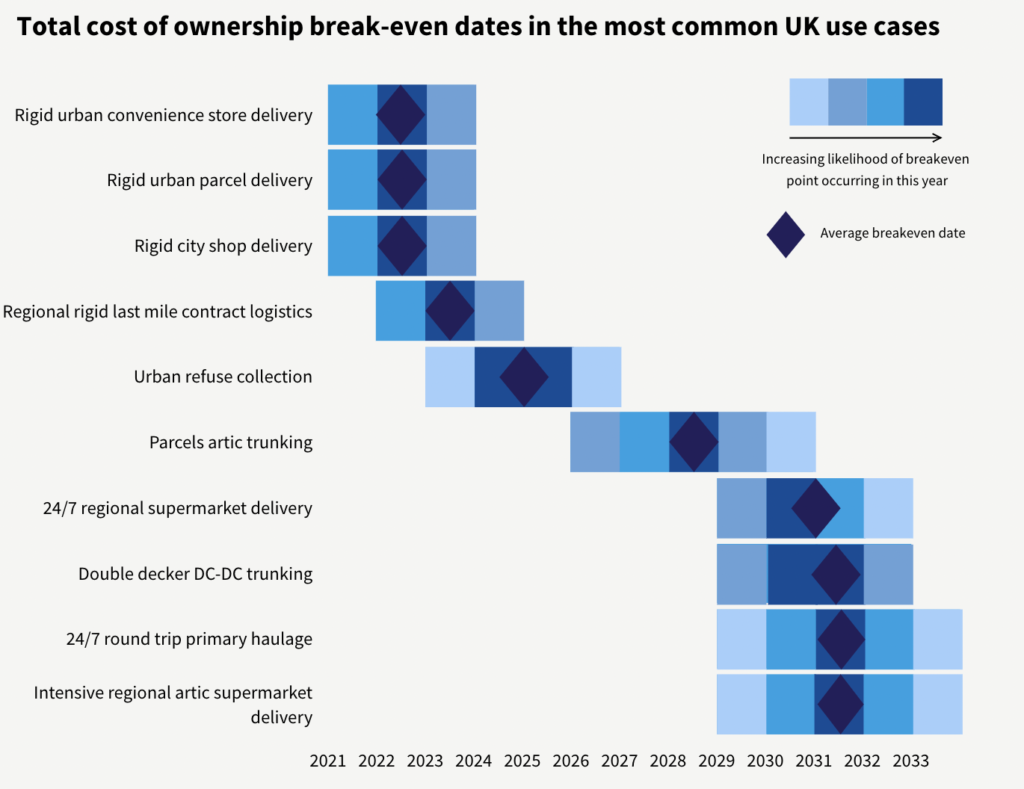Battery electric trucks could start delivering more of the UK’s goods much earlier than previously thought, according to new research published today. The study, commissioned from industry experts Element Energy by Transport & Environment UK, shows that battery electric trucks can already start to replace diesel trucks for most uses in the next few years.
City, urban and regional deliveries with rigid HGVs are on the cusp of being cheaper on a ‘total cost of ownership’ basis – factoring in the purchase price and energy and maintenance costs, even with the most pessimistic assumptions about fuel and battery prices – with battery electric trucks. Electric lorries will reach cost parity with diesel in the remaining use cases, including vocal supermarket deliveries, by the early 2030s. Battery electric truck models coming onto the market in the next year will be able to meet the required range and other operational needs of most truck users in the UK.
The research finds that fewer trucks will require public charge points away from their depots than previously suggested. Trucks usually take shorter journeys in the UK than in other European countries because of Britain’s island geography and dense development pattern. According to the study, over half of British HGVs will only ever need to be charged at their home depot. 93% of the 400,000 truck chargers required by 2050 will be for depots.

Richard Hebditch, director of Transport & Environment UK, said: “The UK’s island geography and density mean lorries do relatively short journeys, and the lion’s share of truck charging will happen in depots. Yes, we’ll need some public charging, but we can make lots of progress now without the need for serried ranks of chargers at every motorway service station. The Government mustn’t miss the opportunity now to kick start the take-up of electric trucks.”
The researchers conclude that the Government’s 2035 and 2040 phase-out dates for sales of diesel HGVs can be achieved ahead of time. But the Government has still not set out a detailed plan to enable the transition to zero-emission trucks. To speed up the switch and reduce truck CO2 emissions and toxic air pollution, they recommend:
- Introducing interim ZEV mandates.
- Supporting UK supply chain development for battery electric trucks.
- Providing more effective vehicle acquisition incentives.
- Supporting the roll-out of private charging infrastructure for depot-based fleets.
- Lowering the early-year risks to public truck charging infrastructure providers through zero/low-interest loans.
- Supporting public charging at major warehouses and logistics hubs.
- Considering changes to vehicle weight and length limits to support electric trucks.
- Reviewing where appropriate driver hours regulations and rest stops.
Source: Transport and Environment
